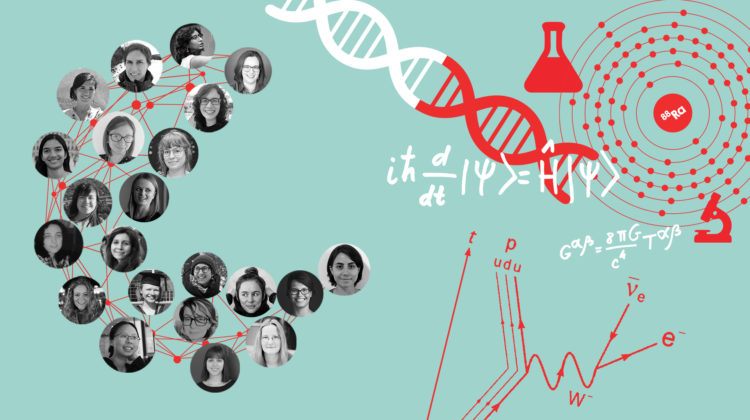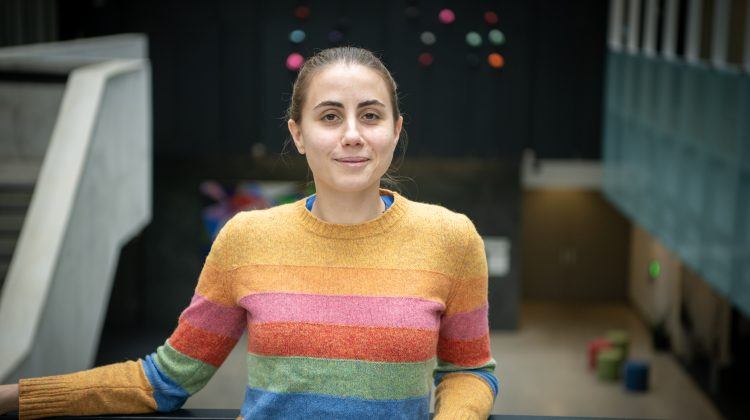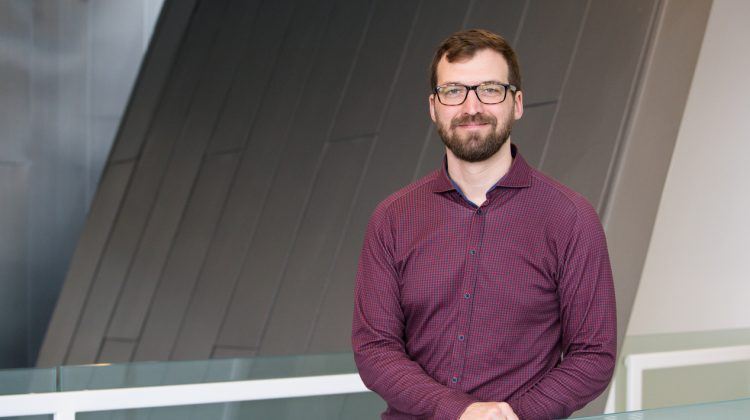How to Bake Pi: Eugenia Cheng Public Lecture
 Wednesday April 5, 2017 at 7 PM ET
Wednesday April 5, 2017 at 7 PM ET
Mathematics can be tasty! It’s a way of thinking, and not just about numbers.
Through unexpectedly connected examples from music, juggling, and baking, Dr. Eugenia Cheng will demonstrate that math can be made fun and intriguing for all. Her interactive talk will feature hands-on activities, examples that everyone can relate to, and funny stories. She will present surprisingly high-level mathematics, including some advanced abstract algebra usually only seen by math majors and graduate students. There will be a distinct emphasis on edible examples.
About Eugenia Cheng
Dr. Eugenia Cheng is a mathematician and pianist. She is Scientist-in-Residence at the School of the Art Institute of Chicago and won tenure in Pure Mathematics at the University of Sheffield, UK. She is now Honorary Fellow at the University of Sheffield and Honorary Visiting Fellow at City University, London. She has previously taught at the universities of Cambridge, Chicago and Nice and holds a PhD in pure mathematics from the University of Cambridge.
Alongside her research in Category Theory and undergraduate teaching, her aim is to rid the world of “math phobia.” Her first popular math book, How to Bake Pi, was published by Basic Books in 2015 to widespread acclaim including from The New York Times, National Geographic, and Scientific American, and she was interviewed around the world including on the BBC, NPR and The Late Show with Stephen Colbert. She was an early pioneer of math on YouTube and her videos have been viewed over a million times to date. She has also assisted with mathematics in elementary schools and high schools for 15 years. Her next popular math book, Beyond Infinity, will be published in 2017 and is already being translated into three languages. Dr. Cheng recently received her first commission for mathematical artwork, and is designing chalkboard installations for the new science themed Hotel EMC2 in Chicago, commemorating Emmy Noether and symmetry. She is also a concert pianist and runs the Liederstube, a not-for-profit organization in Chicago bringing classical music to a wider audience.
Learn more at www.eugeniacheng.com and follow her at @DrEugeniaCheng
General information:
Attendance to the lecture is free, but advance tickets are required. Due to the overwhelming response to past lectures, tickets will be honoured until 6:45 pm only. If you have not arrived by 6:45 pm your reservation may be filled by guests in our waiting line, and you may be asked to join the end of the waiting line.
Waiting line experience:
There will be a waiting line for last minute cancelled (or ‘no show’) seats on the night of the lecture. Doors open at 5:30 pm. Come to Perimeter and pick-up a waiting line chit at the Waiting Line sign and then participate in pre-lecture activities – no need to wait in line. An announcement will be made in the Bistro at 6:45pm if theatre seats are available. Note: you must arrive in person to be part of the waiting line and be in the Bistro when the waiting line announcement is made.
No disappointments:
Everyone who comes to Perimeter will be able to participate in the lecture. The public lecture will be shown simultaneously on closed circuit television in the licensed comfort of the Black Hole Bistro for any members of the waiting line who are not able to get a theatre seat.
Live webcast online:
Enjoy the live webcast of Perimeter Institute Public Lectures from the comfort of your own home. Join us at 7pm ET night of the lecture and be part of the online audience.
For most lectures the on-demand playback will be online within 24 hours after the live event. Check our YouTube page for the playbacks.

PERIMETER INSTITUTE RECORDED SEMINAR ARCHIVE
























































































